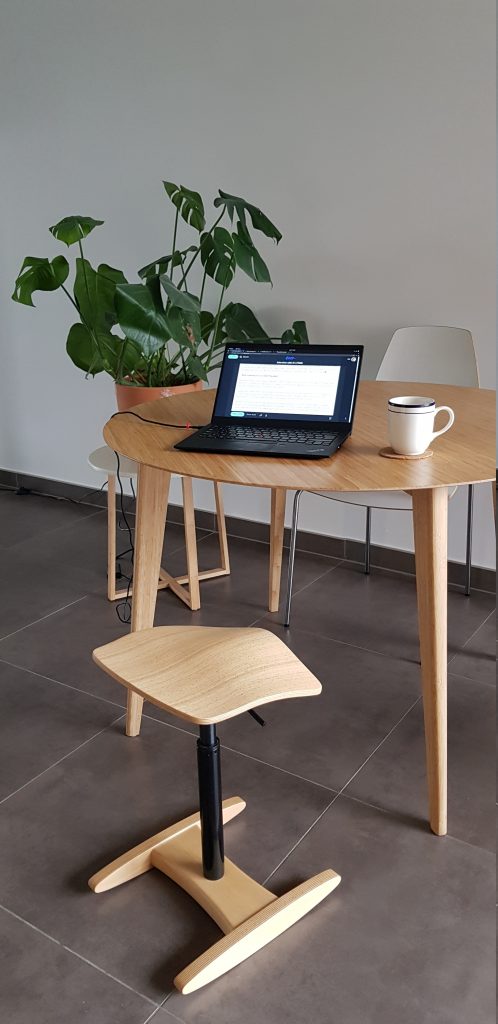Another Radical Move as Fedora Now Wants to Drop UEFI Boot Support on MBR
UEFI boot support for MBR could be removed in Fedora 43.
![Going Against Google Analytics With Plausible's Co-Founder [Interview]](/content/images/size/w100/wordpress/2021/04/Interview-plausible.jpg)

Plausible is a privacy-friendly alternative to Google Analytics. It also aims to be a simple and lightweight analytics solution.
Above all, it is a completely open-source project that also gives you the ability to self-host.
Right after an interview with Lutris creator, I reached to out to Marko Saric, who happens to be a Co-Founder of the project to provide some insights on his vision for this project and the future of Plausible.
I hope the questions and their response make for a good reading and gives you an insight into this open source startup.
Q. What inspired you to create Plausible?
Marko: Plausible is pretty much a direct response to what Google has become and to the state of the web today. Both my co-founder and I were fans of Google in the early years. We were using many of their products and recommending them to our family and friends.
Google has created many useful products that improved the lives of many people all around the world but in recent years Google has changed their priorities and now it’s all about optimizing value for their shareholders, squeezing even more money and further dominating the web.
So now there’s this growing sentiment that Google is evil and of people saying no to Google. In last couple of years, I started de-Googling my life and looking for better alternatives to replace Google’s products and started getting into this space and writing about it.
Both my co-founder and I were familiar and experienced with Google Analytics so Plausible Analytics is a more modern take on Google Analytics. It’s the way we see web analytics being able to provide valuable insights to business and site owners while at the same time respecting the site visitors and being compliant with the different privacy regulations. A win-win-win approach.
Q. It’s tough to compete with a free offering of any kind, especially when you’re up against someone as powerful as Google. How is it going so far?

Marko: Yeah, two people going against the giant that is Google and going against a free product that is installed on the majority of websites with a simple product people need to pay for!? Hopeless! 😱
It’s not easy for sure but I think we’re doing well. I think the culture of the internet is changing. An increasing number of people understands that when you get something for free, you are probably paying for it in different ways such as by having your data monetized and mined for advertising purposes such as the case of Google’s free products.
So more and more people are happy to pay for products in order to use services that respect them and that focus on creating a better user experience. HEY.com from Basecamp is one of these examples of a paid product that is succeeding in taking many people away from the free Gmail.
Plausible is another of these products, and we’ve seen a tremendous growth over the last year. At the time of writing, Plausible is used on more than 14,000 websites and we’ve taken more than 1.4 billion page views directly from the hands of Google to date.
Q. There are some other open-source analytics options like Awstats and Matomo. How would you describe Plausible to be different or similar?
Marko: We’re all three open source tools that allow you more control and flexibility but that’s also where the close similarity stops.
Awstats is a server log tool so it is not really meant for web analytics purposes the way that Google Analytics is used. Most of the data Awstats shows consists of bots and spam rather than actual humans. It is useful for some other purposes such as system administrators but not so much for the purposes of checking what’s happening on your site in terms of humans using it. See this study that shows how inaccurate Awstats is compared to Plausible.
Matomo is more like a full-blown replacement of Google Analytics so they have hundreds of different reports and they track hundreds of different data points about people. Plausible is more like a different take on analytics. It is privacy-first tool so you don’t need to tweak Plausible to make it respect your visitors or privacy-regulations. This data minimization also means that Plausible is very lightweight and simple to use compared to Matomo.
Q. Tell us something about your team. There are two founders, you and Uku That. Are there other members in your team? How do you divide your work on Plausible?
Marko: It’s only the two of us at this moment. My co-founder Uku Taht is focused on the development and design. I am focused on marketing and communication. We work remotely and flexibly, and we have actually never met each other in real life.
We do video calls twice per week, and we communicate regularly via chat too. We talk about and discuss all the different aspects of Plausible but the work we do is clearly divided into the different areas we are specialized in and have experience with.
It’s a good split and I recommend other projects do something similar. Many open source projects focus a lot on say development but perhaps forget the communication. On the other hand, there are teams that are all about marketing and pushing a shitty product. A balance where both development and marketing play an important part makes more sense to me and gives a higher chance of success.
One challenge in the future would be how to deal with the fact that at some point the two of us might not be able to handle all the workload we have. When it’s time to hire help, how can we do that sustainably while at the same time not changing any of our ideas and principles in this risky and very competitive field. We’ll see how we can do that.
Q. Is Plausible your side hustle or main job? What do you do with your free time (if you have any left after working on Plausible)?

Marko: Plausible is my full-time job since I joined as a co-founder about a year ago. It’s been very busy with Plausible as we’ve been growing like crazy so any free time I get is used to relax and disconnect. I really appreciate the weekends and the holidays these days as they are less hectic with fewer messages coming our way which helps calm down a bit and recharge.
I struggle a bit with completely disconnecting from Plausible. There’s always something I’d like to do and improve. For instance, even though today is a national holiday I have taken some time to respond to these questions as the relatively slow day allows me to put more time into the answers than I would be able to on a regular day.
I can say that the fact that we’re under a lockdown because of the pandemic has helped make it easier for me to put a lot of time and effort into growing Plausible without feeling like I’m missing out on too much. It’s a great feeling to work on and grow a startup and hear from all the people that use a product you are a part of.
Q. How is the financial side of Plausible? Are you able to make money offering your open source software as a service?

Marko: We’ve grown a lot over the last year of so. This time last year when I joined we were on about $400 in monthly recurring revenue which is not much for two people living in Europe, so we were living from our savings for the first few months. I ended up losing about $30,000 of my savings to cover my living expenses and my co-founder lost a similar amount.
But over the last three months or so we have grown like crazy and now we’re on 2700 paying subscribers and $18,500 MRR which allow us to pay our bills, running costs, our salaries and slowly start recovering the savings we have lost in the months where we didn’t have the revenue and didn’t pay any salaries.
For myself I’m hoping to pay back all the savings lost and start saving again at some point this year, so I don’t feel like I’ve lost couple of years of my finances compared to what I could have if I stayed with a regular job. The future looks bright and we’re doing our best to continue the progress.
Q. Do you have any plans to go for venture funding or are you happy with its growth and keep things in your hands?
Marko: We don’t have any plans to look for venture funding. We actually regularly get approached by venture capitalists but until now, we politely say no or simply ignore their messages.
I’m not someone who says that all the funding is evil. There are many relevant use cases where venture funding makes a difference. Say in the early days if we didn’t have any personal savings it would be impossible for us to work on Plausible. Or if we were building something very complicated such as a coronavirus vaccine or if we wanted to get to Mars. External funding can be a great option in those cases.
For Plausible itself, venture funding is less interesting. We want to be able to control what Plausible does and how Plausible is grown. For instance, we are keeping it intentional for Plausible to be a simple platform that minimizes data collection and we say no to some of the more intrusive tracking practices no matter how many requests we get to build them.
Same in terms of marketing. We say no to all the paid advertising on Facebook and Google. We ignore all the growth hacks, dark patterns and other tricks people use to grow their business. These things are easy to do when you’re fully in control but we may feel pressured to do things differently if we took lots of funding and needed to grow at all cost.
My recommendation for other startups is if you can afford it, don’t take any funding early on no matter what your long-term goal is. Don’t waste your time chasing investors and making pitches but focus your time on building and growing your product.
By growing organically without any funding early on, you put yourself in a better positioning where you can keep control of the decisions in your startup even if you do take funding later on. You’ll have many investors knocking on your door making much better financial offers and letting you stay in control of your startup.
Q. Plausible is open source software. Are you not afraid of people self-hosting it? Or even worse, someone copying it and rebranding it and sell it under a different brand name?

Marko: Plausible is 100% free and open source software with no proprietary parts. We have released an easy self-hosted version even though we didn’t have to. We’ve also made it completely free as in beer without any proprietary add-ons on principle rather than because it’s good business. So, we’re not afraid of people that prefer to self-host or individuals that cannot afford to pay a subscription fee.
We do invite people who use the self-hosted version to contribute back by sponsoring the project on GitHub. We have 16 sponsors at the moment which gives us about $150 per month in total. 100% of all the sponsorship money goes back to people that help us on GitHub. See https://github.com/sponsors/plausible
Open source projects are a bit exposed and under threat from organizations and companies that want to take advantage of their work in order to make money without really caring about open source or without wanting to contribute anything back.
There are many cases where this has happened and even in our case we started with a permissive license but got threatened by couple of large organizations that wanted to re-sell Plausible without contributing anything back. That could have instantly killed our project and any chance of becoming sustainable.
We changed our license from MIT to the AGPL because of this threat as most of these companies looking to take advantage of open source don’t really love open source and a copyleft license such as AGPL prevents them from making moves. See our story on the license change here https://plausible.io/blog/open-source-licenses
Q. You’ve pledged to donate 5% of your gross revenue to environmental causes and open source software projects, that’s very impressive. Would you mind to share more about it? Like – which open-source projects you’re specifically supporting?
Marko: We worked hard on making Plausible a sustainable project that can pay our bills without monetizing, selling or sharing data for advertising purposes. We got lucky and are now in a more privileged position so we wanted to give a bit back to the sustainability of our planet and other open source projects.
Working on open source is challenging and most open source projects are not financially sustainable. Many popular open source projects are terribly under-resourced and under-funded. Some open source developers even have to sacrifice their financial security to work on their passion. Most people working on open source do it in their spare time and many projects are reliant on donations from large corporations such as Facebook and Google.
It is a big problem and a better business model is needed if we want open source software to become stronger and a better alternative to proprietary products or to products made by surveillance capitalism. A model more aligned with something people or businesses believe in so much or find value in that they are willing to pay for.
Donations simply don’t cut it as only a tiny percentage of users end up donating which makes it difficult to get enough time and people to be focused on developing, designing and promoting open source software. From speaking to other open source maintainers it is common that fewer than 1% of users donate to the project itself and this lack of resources holds open source back. I have written more on the topic of open source funding in one of my blog posts.
That’s basically why we wanted to start this little fund. We have seen first hand from our own self-hosted product how difficult it is to pay your bills by relying on donations. We don’t have any investors to optimize our revenue for so we decided to set a good example and give a bit back. It’s still early days as we just launched this at the start of 2021, but in the first quarter we were able to allocate $3,345 to give back.
At the start of next year, we will take all the money we collected and give it to projects we care about and projects that Plausible stands on the shoulders of. No questions asked. We will take some time later this year to handpick a few projects and will then announce the details. You can follow along here.
Q. What have you planned for the future of Plausible? (Business goals, Feature plans, etc) Especially in 2021, when privacy-friendly services are getting a boost.

Marko: We are a small team with a lot of growth and demand on our time so we’re taking it one step at a time. We’re trying to automate and optimize so we can run a business with 2700 customers without being overwhelmed with the different tasks and requests.
All our development is done in the open on GitHub where we also have a roadmap of feature plans and where we allow people to make feature requests. We’ll be working on improving the product by adding new features people have asked for frequently.
We’re also working on our infrastructure so we can handle an increasing number of sites and traffic, and that for instance our dashboard still loads fast no matter how large a website is. We recently got a subscriber with one site with 150 million monthly page views so we needed to do some work in order for our dashboard to load fast even when analyzing that kind of traffic levels.
And the key part is obviously to keep making a difference and to keep getting the word out to more site owners and more businesses. If we can get more people on board, then all the other decisions become a bit easier.
Q. Let’s take a hypothesis. If you were to develop another privacy-friendly open-source software today, what would it be?
Marko: I would just take a look at products and sites people are using and see how we can make a more modern and privacy-first spin on it. I see privacy-first as being the new standard for all software and all the services few years in the future.
There already are many privacy-first products but there’s space for more as most options currently on the market are not that user friendly and not that easy to use for normal people. Billions of people use privacy-invasive tools funded by surveillance capitalism every day so there’s a lot of opportunities in this market.
My main advice for people looking to start more privacy-friendly and open source software is to not only focus your message and positioning on privacy-first and open source software alone. This is a mistake I see very often with teams too focused on technical aspects of software. Most people don’t care about the technical aspects so much, they’re looking for solutions instead.
If you look at Plausible, yes we are privacy-first and open source but we’re so much more than that and most people start using Plausible because of the other aspects. Many people that use Plausible use it as it helps them comply with the different regulations easier than Google Analytics can.
Others use Plausible because it is so much easier to understand and get actionable insights from compared to Google. Some use Plausible because it is so much lighter than Google Analytics so they can get a faster loading website that uses less electricity by doing so.
So basically we are successful in getting more people to use privacy-first and open source software instead of proprietary software by being focused on doing some of the other more exciting aspects (design, usability, ease of use, speed…) better than our competition. Just positioning Plausible as a privacy-first and open source tool wouldn’t get us this far.
Q. What message would you like to give to our readers who share the same interest as yours and potentially want to contribute to Plausible?
Marko: Whatever you can do is better than not doing anything at all. You can promote better products to your family, friends, colleagues, clients and bosses. Talk about the surveillance capitalism to raise awareness about this problem. Ask your favorite site or company about this and why they’re using unethical tools they’re using. Suggest them alternatives. Tell them that you care about this and that this is important.
You can also start paying for products and services that you love and in that way support companies that do things well. The default business model of the web is to give stuff away for free and sell user data so by putting your money where your mouth is you will be helping support and grow a different and better web.
The more money that gets spent on better and more ethical tools, the more people will be able to work on those tools which will make those tools better and more competitive alternatives to the surveillance capitalism funded tools. I went from rarely paying for software few years ago to now where I’m paying for things I used to get for free such as a better email service, better news reader, better notes application and so on.
If you’re a designer or developer, you can even contribute directly to the open source tools. Use those tools and if you notice something wrong or something you have the skills to improve, get in touch, write about what you discovered and propose a solution that you can do a bit of work to build and improve things for everyone.
Plausible Analytics is a compelling alternative to Google Analytics for webmasters who do not want many insights about the visitors. Of course, if you want more insights, Google Analytics is still a robust choice.
If you’re curious to explore more about it, you might want to go through our quick review on Plausible.
What do you think about Plausible and the vision behind it? Feel free to share your thoughts in the comments down below.
Stay updated with relevant Linux news, discover new open source apps, follow distro releases and read opinions